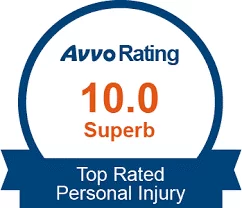Traumatic brain injuries (TBIs) can create short and long-term impacts that not only affect the injured individual but also their friends, classmates, teachers and family members. Many people who suffer from a TBI also aren’t exactly sure where they should begin in terms of educating the people they love and are closest to them.
For young children in school and their parents, this is very important because TBIs can have severe effects on students of all ages. Recent research has proven that TBIs can frequently be bad for things like concentration, memory, visual perception and several other basic cognitive skills. This makes it tough for students who suffer from TBIs and their parents when it comes to making sure the student is getting good grades and isn’t struggling in school due to his or her injury.
It’s very important that parents of children with brain injuries of any type help inform their school about the injury as soon as possible, and prepare the child to be able to answer some of the tougher questions he might receive from his peers and teachers too. Almost all schools will help out students who have suffered from a brain injury by giving them certain accommodations that make doing class/homework and taking quizzes/tests a little more bearable.
Some of these accommodations that many parents and students don’t know about include the following:
- Allowing more time for in-class assignments
- Providing the student with outlines or study guides for lectures
- Reducing the quantity of required work in favor of the quality of work
- Exempt the student from reading out loud in class if they don’t want to
- Additional time to complete quizzes/tests
- Providing an individual, quiet test-taking environment
- Sometimes the student can use a thesaurus or dictionary during tests
But above all else it’s important to educate those children with brain injuries themselves so they understand why certain learning and reading skills might be tougher for them. By getting your loved one who’s suffered from a brain injury as aware as possible of their condition they’ll be more prepared to handle tough situations when their injury is playing a detrimental factor throughout their day-to-day life.
So here are some ways to educate others about your brain injury!
Provide Reputable Resources
Highly reputable resources will always be one of the very best ways to increase awareness and essentially provide the necessary type of information that many people otherwise wouldn’t understand when it comes to brain injuries. Some really great TBI resources could be informational medical websites like WebMd, medical journal articles from universities and professional hospitals or trade publications, as well as sites like TryMunity, which is a non-profit website.
Utilize Social Media
Facebook and other social media outlets are incredible ways to really easily get the word out about your own or your loved one’s brain injury, and what’s great is that those closest to you who follow you will be the people who see what you post. These followers of yours may have never done any kind of research about brain injuries and could be totally unaware of what these injuries really entail, so you could very well be surprised by the number of people you could impact by spreading the word about brain injuries to your social media community.
Also, don’t forget social media is a great place to share those reputable resources too!
Go to the Experts
This is a good one for the injured individual because it’s so much more personal and you’ll be able to learn a lot from any brain injury specialist or doctor who’s passionate about identifying the awareness needs where you live. Doctors are great resources to helping you know when a local event that provides brain injury awareness is happening, and their knowledge is always second to none, including the internet!
There really are endless ways to promote awareness of brain injuries to your friends, family and local community, and these steps are simply just your starting point!


